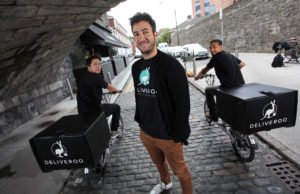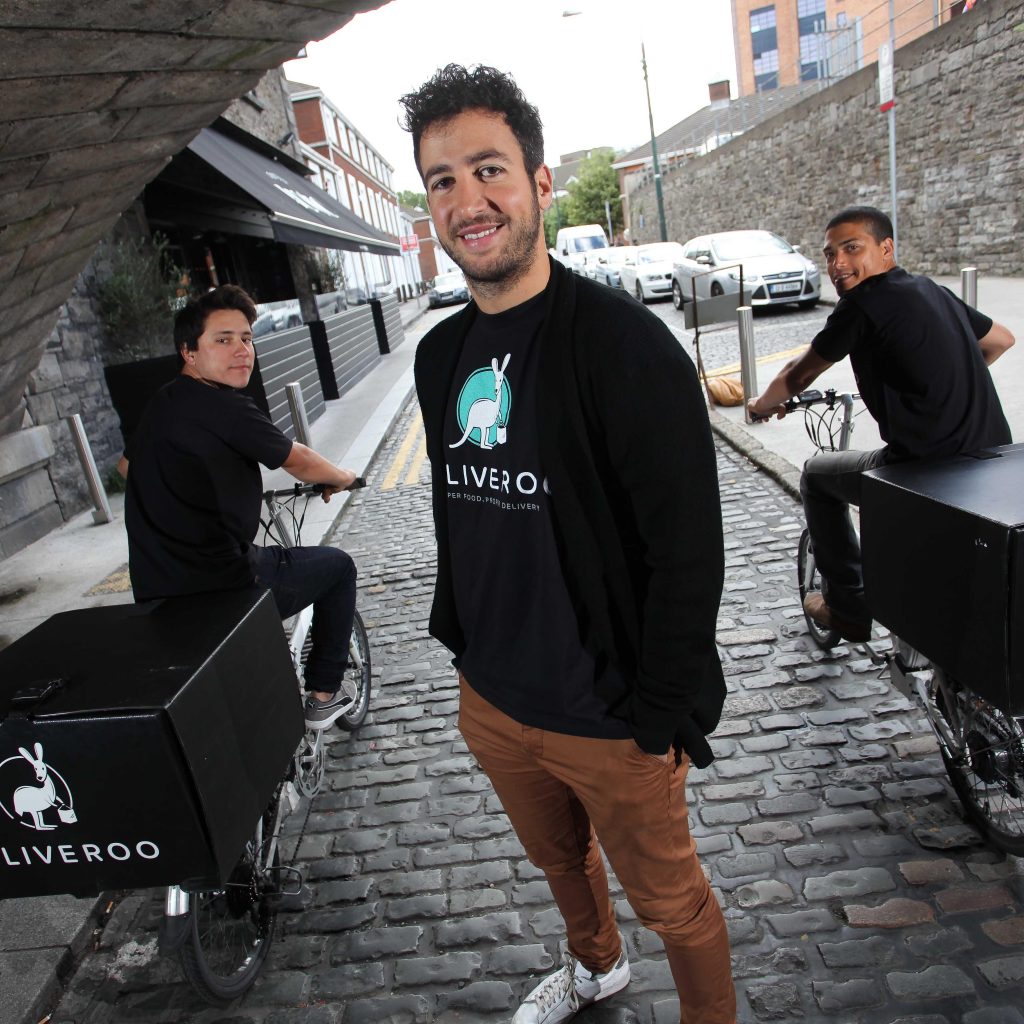The Entrepreneurs Transforming Traditional Logistics
A new generation of tech-enabled startups is innovating the logistics landscape. From GPS enabled e-commerce deliveries to 5-star food on demand, Sindhu Hariharan investigates.
Disruption is the buzzword across businesses today. Globally, the new normal is a scenario where long-standing companies need to operate as smart businesses or run the risk of lagging behind their peers. While technological disruption is making its presence felt across businesses, logistics, by nature, has been a difficult one for start-ups to enter and thrive in.
Based on ships, rail, trucks and aviation, the industry is an asset-heavy one and regulation-driven. The presence of risk-averse stakeholders who are restrained when it comes to embracing tech innovations adds to the hurdles.
The sustained economic growth in MENA region, mainly across automotive, retail (e-commerce) and health sectors, has increased the need for a smart and robust logistics framework. Despite various structural challenges being thrown at tech start-ups, MENAs logistics industry is witnessing promising entrepreneurial action.
Few upstarts, realising the potential of digitising this industry, are leveraging technology to solve operational issues. While one of the start-up uses technology to strengthen last-mile delivery critical to support e-commerce, there are others that have applied principles of the sharing economy pioneered by Uber, to the freight industry. These ventures all have one thing in common: they have all used the UAE market as their launch pad before venturing further into the MENA market.
We feature three such new-age logistics start-ups placing their bets on the mobile and digital revolution sweeping over the MENA region and aiming to disrupt the logistics industry.

Idriss Al Rifai founder and CEO, Fetchr
Fetchr
Fetchr aims to eliminate use of conventional addresses and instead deliver packages using the GPS coordinates of consumers. The Fetchr mobile application and its delivery team ensure efficient last-mile delivery without the hassle of coordinating verbally for directions. The app helps shippers to deliver packages to the exact location of the recipient using the GPS location feature on their smartphone, which is an integral part of life for the majority of people today.
E-commerce is defined by strong logistics and we at Fetchr aim to move along with the customer to make deliveries, says co-founder Joy Ajlouny. Fetchr considers its service useful to e-commerce companies looking to scale their operations. It also helps enrich the shipping experience for the customer. Large e-commerce providers, retailers and tech-oriented individuals are major customer groups of Fetchr.
In an infant venture capital market like MENA, Fetchr has raised $11 million in Series A funds from investors led by New Enterprise Associates (NEA), a large US based venture fund. Fetchr currently operates in the UAE, Saudi Arabia and Bahrain and has aggressive expansion plans for the GCC region in the short-term. The company is also evaluating partnerships for international deliveries.
Fetchrs biggest challenge is to do away with physical addresses and use technology to redefine the very premise of the shipping address.
Even with the massive smartphone penetration in the region, we had to work to create awareness about how our technology can define locations, for both customers and staff who were not used to this, comments Idriss Al Rifai, founder and CEO, Fetchr.

Sebastian Stefan, co-founder, LoadME
LoadME
LoadME holds the distinction of being the first and only marketplace connecting transporters and load owners in the Middle East using the power of Internet and GPS tracking.
As a Middle East logistics professional, Sebastian Stefan, Co-Founder and CEO, LoadME observed more than 50% of trucks returning empty after shipping trips.
Besides affecting profitability of the transporter, this creates traffic congestion and adds to the emissions footprint, says Stefan.
This gave shape to LoadME, a web platform connecting freight/loads to trucks with spare carrying capacity on an on-demand basis. Features like transporter reviews, driver profiles and load details enable real-time evaluation of options through the portal.
Stefan pegs the savings to transporters at almost $100 per day by such a utilisation of capacity. This includes savings on fixed costs of empty trucks parked in their compounds and the fuel efficiency achieved.
The idea is a transformation of sorts for the regions unorganised trucking business, which largely relies on third-party brokers to play matchmaker. However, LoadME stresses that the business aims to empower the broker with their tool and not push them out of business.
Currently, LoadME has over 2,300 registered users including transporters, load owners and brokers and it aims to expand in GCC states and Jordan. The company is testing its mobile application and looking at evolving into a community portal for logistics professionals.
Though its nice to not have direct competitors, the industry is largely unaware of the model and we need to educate them on the benefits of the technology, observes Stefan.

Anis Harb, GM, Deliveroo
Deliveroo
Deliveroo is an on-demand food delivery service bringing to consumers, food from premium restaurant chains that typically do not run their own delivery services. Founded in 2013, the UK-based venture made its first foray outside Europe last month with its launch in Dubai.
Anis Harb, UAE GM for Deliveroo considers the venture as a tech company creating a win-win situation for restaurants and consumers alike.
Harb explains that the plug and play nature of the proprietary software brings incremental revenue for restaurants without incurring any additional fixed costs and also relieves them of fleet management. For consumers, Deliveroo is an Uber for food. A customer can order from the networks restaurants and track the status of deliveries through the Deliveroo app. The company targets to achieve an average of 32 minutes delivery time on its orders. Its drivers complete orders seamlessly using the navigation features on the app.
Deliveroo has established tie-ups with over 100 Dubai restaurants in neighbourhoods like Dubai Marina, J.L.T., Downtown and Business Bay among others. Starting with the GCC region, where demand for food take-away and orders is high, the start-up aims to expand its network of premium restaurants. Globally, Deliveroo has raised $200m to date from major investors including Accel, DST Global and Greenoaks Capital among others.
The biggest task for us in ensuring efficient and reliable deliveries is the driver (delivery teams) onboarding process, said Harb. Deliveroo tackles this challenge by running extensive training programs to educate the drivers on the proprietary technology and navigation systems.





